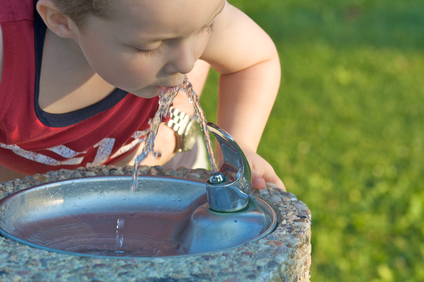Removal of lead water pipes in Amsterdam highlights a wider problem


Four daycare centres and nine other locations in Amsterdam where pregnant women and children congregate have too high a percentage of lead in drinking water, city council officials have confirmed.
The warning comes as a housing cooperation in the capital begins removing lead drinking water pipes from a number of its homes because of the serious health risk to its tenants, the Volkskrant reported on Wednesday.
‘Operatie Lood Eruit’ (operation remove lead), which will tackle social housing in Amsterdam Noord owned by the Ymere housing cooperation. Although a ban on lead water pipes has been in place since the 1960s, owners have no legal obligation to replace them..
Last November, the national health council up to 200,000 homes in the Netherlands may still have lead water pipes, which pose a risk to young children and pregnant women.
The council also recommended that the maximum amount of lead permitted in water be cut from 10 microgrammes a litre to five, because there are indications that lead is even more harmful than previously thought. Lead can harm brain development in young children and in adults it can cause heart disease and chronic kidney problems.
Locations
‘We knew there could be bits of lead in the supply pipes but we didn’t know exactly where they were and how they influenced water quality,’ Ymere spokesperson Coen Springelkamp told the paper.
Ymere measured the concentration of lead in 662 homes and found 126 had more than 10 microgrammes per litre. Another 146 homes showed concentrations of between 5 and 10 microgrammes. The removal of the pipes from the cooperation’s homes will take two years and cost €5m.
Tests carried out in the capital have shown that more neighbourhoods are affected. In one house in the Rustenburgerstraat in the south of the city a whopping 135 micrograms per litre of drinking water was measured. In all cases where lead has been found, safe drinking water has been provided via a public pump.
Thank you for donating to DutchNews.nl.
We could not provide the Dutch News service, and keep it free of charge, without the generous support of our readers. Your donations allow us to report on issues you tell us matter, and provide you with a summary of the most important Dutch news each day.
Make a donation